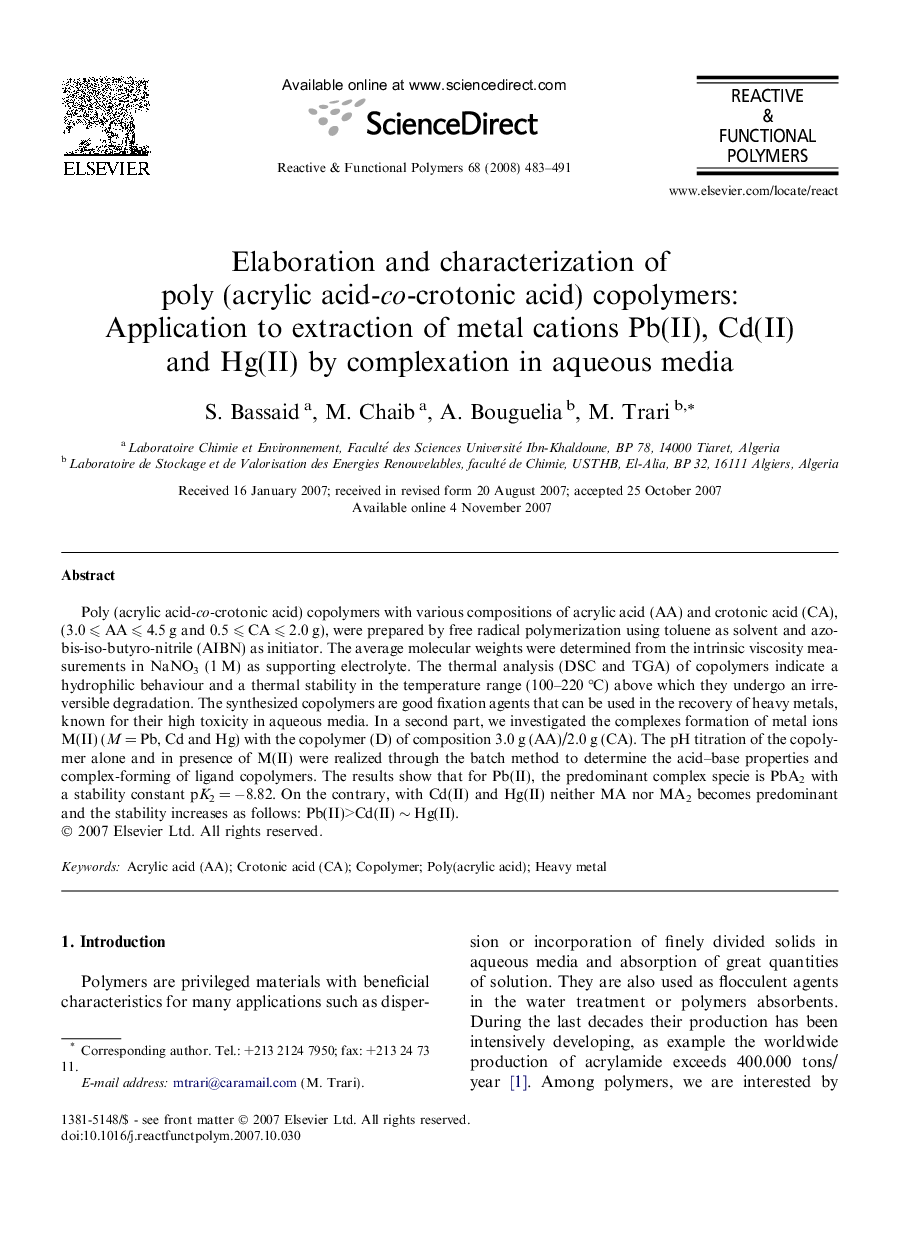| Article ID | Journal | Published Year | Pages | File Type |
|---|---|---|---|---|
| 5211025 | Reactive and Functional Polymers | 2008 | 9 Pages |
Abstract
Poly (acrylic acid-co-crotonic acid) copolymers with various compositions of acrylic acid (AA) and crotonic acid (CA), (3.0 ⩽ AA ⩽ 4.5 g and 0.5 ⩽ CA ⩽ 2.0 g), were prepared by free radical polymerization using toluene as solvent and azobis-iso-butyro-nitrile (AIBN) as initiator. The average molecular weights were determined from the intrinsic viscosity measurements in NaNO3 (1 M) as supporting electrolyte. The thermal analysis (DSC and TGA) of copolymers indicate a hydrophilic behaviour and a thermal stability in the temperature range (100-220 °C) above which they undergo an irreversible degradation. The synthesized copolymers are good fixation agents that can be used in the recovery of heavy metals, known for their high toxicity in aqueous media. In a second part, we investigated the complexes formation of metal ions M(II) (M = Pb, Cd and Hg) with the copolymer (D) of composition 3.0 g (AA)/2.0 g (CA). The pH titration of the copolymer alone and in presence of M(II) were realized through the batch method to determine the acid-base properties and complex-forming of ligand copolymers. The results show that for Pb(II), the predominant complex specie is PbA2 with a stability constant pK2 = â8.82. On the contrary, with Cd(II) and Hg(II) neither MA nor MA2 becomes predominant and the stability increases as follows: Pb(II)>Cd(II) â¼Â Hg(II).
Related Topics
Physical Sciences and Engineering
Chemistry
Organic Chemistry
Authors
S. Bassaid, M. Chaib, A. Bouguelia, M. Trari,
